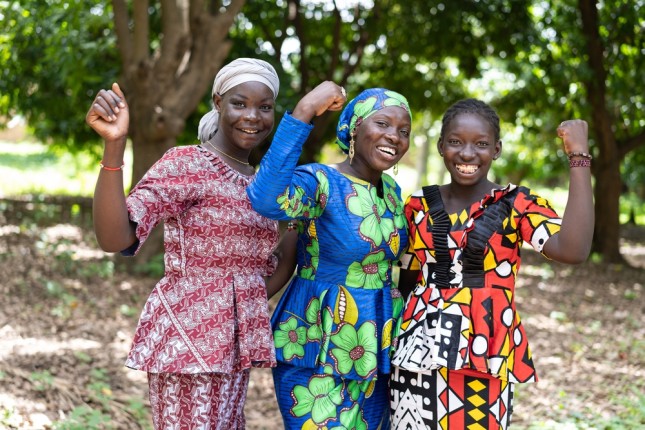-
Youth Led Social Accountability – Case Studies and Challenges
November 1, 2023 By Rhea Kartha
Young people should be able to hold public officials and service providers accountable for meeting their needs and rights. And this principle—known as youth social accountability—can also have a ripple effect on the health and wellbeing of young people themselves by enhancing the quality of health services and fostering more positive interactions with adolescents within health systems.
“Through social accountability mechanisms, youth have structured, systematic, methodical means to ensure they are able to shape health systems to fit their needs,” said Cory Wornell, Youth and Reproductive Health Advisor at the United States Agency for International Development (USAID), at a recent event hosted by USAID’s MOMENTUM Country and Global Leadership titled, The Power of Youth Voices: How youth are holding their health systems accountable for meeting their sexual and reproductive health and rights.
MOMENTUM Country and Global Leadership is providing organizational and technical assistance to do so based on the needs identified in local communities. The partnership works with two youth-led organizations—Youth for Sustainable Development (YSD) in Kenya and Youth Advocacy on Rights and Opportunities (YARO) in Ghana—to bolster the community desired implementation of youth-led social accountability mechanisms.
Both YSD and YARO support many activities aimed at positive youth development, including raising awareness about sexual and reproductive health (SRH) and giving young people the tools they need to speak for themselves and their needs. The two groups also assist authorities and elders in calibrating how they respond to young people’s concerns throughout Ghana and Kenya.
“Youth-led discussions around youth sexual and reproductive health rights led to reduced stigma among service providers and community members,” said Hajei Bennin, Executive Director of YARO in Ghana. In one district, YARO held separate educational group sessions for mothers and fathers to foster an open and safe environment for women to express concerns about their children accessing SRH services, which they found led to more meaningful and honest discussions. By the end of the training, Bennin observed that conducting educational sessions and employing youth volunteers to educate their peers had effectively enhanced the acceptance and availability of SRH services.
In Kenya, Margaret Wanja, Business Development Manager at YSD, says that her group found a significant increase in the availability of SRH commodities such as condoms and contraception by the completion of its training.
Meeting Challenges
Despite seeing promising improvements in the accessibility of sexual and reproductive health services and commodities, challenges to more widespread use of youth social accountability persist.
One primary barrier is a distrust in the abilities of young people: “Some stakeholders did not trust that youth led organizations would be able to lead successful initiatives” said Bennin. Stakeholders tend to believe that young individuals have not had enough time to develop the skills, knowledge, and maturity required to handle complex projects. This concern has been addressed by advocates’ adoption of “network mapping,” a method used to visualize and analyze the connections, relationships, and interactions among various stakeholders, and how they influence public health outcomes.
Youth-led social accountability also contributes to positive youth development (PYD)—a youth empowerment framework that helps build skills, assets and competency, as well as fosters healthy relationships, strengthens the environment, and transforms systems. Through the use of community scorecard presentations at webinars and international conferences, Wanja shared that young people who engaged in PYD activities gained both the competency and the confidence to converse with government entities and officials.
Another benefit of activities promoting PYD is their impact on healthcare professionals. These efforts have increased awareness of the specific needs of youth and adolescents within these systems. Consequently, this knowledge meant healthcare professionals were better equipped to deliver accessible and youth-friendly services.
Wornell observed that it is important to document youth-led social accountability activities. Doing so will provide young people who seek to use this powerful tool, with tailored guidelines, lessons learned, and the motivation to believe that they, too, can accomplish similar initiatives at their age.
Sources: Advocates for Youth, CARE, The Communication Initiative Network, USAID – MOMENTUM.
Photo Credit: Group of young black African villagers in colourful traditional dresses smiling at the camera. Riccardo Mayer/Shutterstock.com
 A Publication of the Stimson Center.
A Publication of the Stimson Center.



